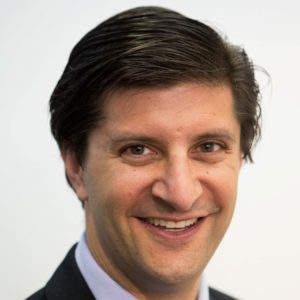Howard D. Sesso, ScD, MPH
Associate Director, Division of Preventive Medicine
Associate Professor of Medicine, Harvard Medical School
Associate Epidemiologist, Brigham and Women’s Hospital
hsesso@bwh.harvard.edu

Dr. Sesso specializes in the epidemiology and prevention of cardiovascular disease (CVD), including hypertension and obesity as major risk factors, as well as cancer. His research focuses on the role of vitamin and mineral supplements, along with nutritional biomarkers, on the prevention of chronic disease. Dr. Sesso is Associate Director of the Division of Preventive Medicine at BWH and is with Director of Nutrition Research and Co-Director of Hypertension Research. Dr. Sesso is also an expert in the design, methodology, and conduct of epidemiologic studies and randomized clinical trials. Dr. Sesso helps lead the Physicians’ Health Study, consisting of two separate completed clinical trials that have tested aspirin along with beta-carotene, vitamin E, vitamin C, and a multivitamin supplement on cardiovascular disease, cancer, and other chronic diseases in 29,071 men with multiple blood collections and decades of follow-up. Dr. Sesso is also testing vitamin D and fish oil supplements on 24-hour ambulatory blood pressure and hypertension risk in an ancillary study of the VITamin D and OmegA-3 TriaL (VITAL) trial. Dr. Sesso is Co-Principal Investigator of the COcoa Supplement and Multivitamin Outcomes Study (COSMOS), a randomized, 2×2 factorial trial testing cocoa flavanol and multivitamin supplements in the prevention of CVD and cancer in 21,444 older women and men with 4 years of treatment and follow-up. He has also led completed and ongoing short-term trials of lycopene and magnesium supplementation on intermediate cardiovascular outcomes. Dr. Sesso has published more than 280 papers to date and teaches courses on clinical trials and epidemiology at the Harvard T.H. Chan School of Public Health and Harvard Medical School and enjoys mentoring students and junior faculty.
BA: Stanford University
MPH: George Washington University
ScD: Harvard School of Public Health